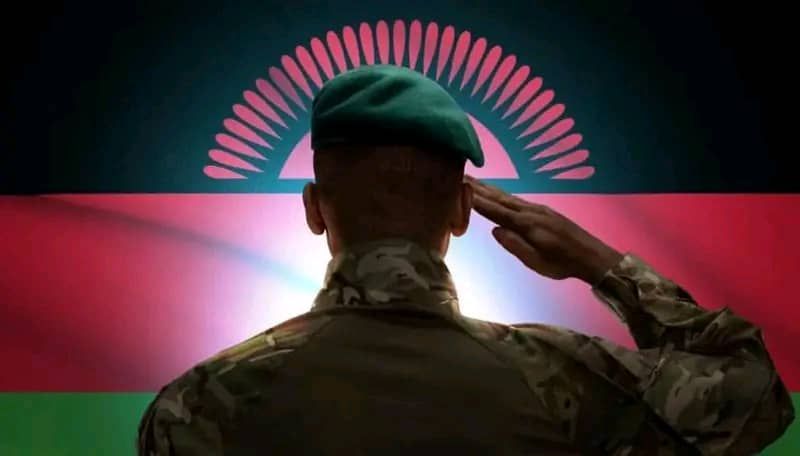By Burnett Munthali
Martyrs’ Day is a public holiday observed in Malawi every year on March 3. The holiday helps to honor the political heroes who gave their lives in the struggle against British colonialism. The British Central Africa Protectorate was established by Britain and included the whole of present-day Malawi. Malawians decided to create their political parties. The Nyasaland African Congress (NAC) emerged as the strongest voice for Malawians. The holiday is celebrated to honor the country’s heroes and inspires the next generation to go after change and improvements in society.
Malawi today
Located in Southern Africa, Malawi is landlocked, sharing its borders with Mozambique, Zambia, and Tanzania. The country’s estimated population is 20.41 million (2022) with an annual growth rate of 2.6%.
Malawi remains one of the poorest countries in the world despite making significant economic and structural reforms to sustain economic growth. The economy is heavily dependent on agriculture, which employs over 80% of the population, and it is vulnerable to external shocks, particularly climatic shocks.
In January 2021, the government launched the Malawi 2063 Vision that aims to transform Malawi into a wealthy, self-reliant, industrialized upper-middle-income country, through a focus on agriculture commercialization, industrialization, and urbanization. The first 10-year implementation plan anchors the World Bank’s Country Partnership Framework (CPF) FY21- FY25.

Malawi before
In 1891, Britain established the British Central Africa Protectorate which included the whole of present-day Malawi. The protectorate was renamed Nyasaland in 1907.
In the 1950s, the spirit of Malawian nationalism grew as a result of resistance to political moves by the British to form a stable presence in the region, such as the creation of the Central African Federation in 1953, which attempted to bring Nyasaland together with Northern and Southern Rhodesia.
This gave the impetus to Malawians to create their own political parties, with the Nyasaland African Congress (NAC) emerging as the strongest voice for Malawians.
In early 1959, the NAC stepped up their protests with a plan to continually raise the level of demonstrations to force the British into a response. This led to the British declaring a state of emergency on March 3rd 1959. In an attempt to quell the protesters, they arrested prominent Malawian nationalists and other dissidents during Operation Sunrise.
Every year, on 3rd March, Malawians observe Martyrs Day. Whereas the day invokes sorrowful memories, it is the day we show respect for the magnanimous men and women who braved bullets, suffered imprisonment and all forms of humiliation during the fight for the freedoms and rights we enjoy today. It is the day we remember and honour our freedom fighters and the values and ideologies they envisaged to make Malawi a better country for all.
Apart from 3rd March there are other two days on which we also remember our martyrs; 15th January, Chilembwe Day, we celebrate the life of Reverend John Chilembwe of the Providence Industrial Mission in Chiradzulu who led a dramatic and fierce rebellion against colonialism in 1915 and on 14th May, Kamuzu Day, we remember our first Republican president, Kamuzu Banda.
President Dr Lazarus Chakwera is scheduled to lead the commemoration of Martyrs’ Day at Senior Chief Mkumbira in Nkhata Bay tomorrow, March 3, 2024.
According to a statement from the Secretary to the President and Cabinet, Colleen Zamba, President Chakwera will preside over a Memorial Service of Worship in the district.
March 3 was set aside to honour the people who gave their lives in the struggle against British colonialism.
The present Malawi
According to International Monetary Fund (IMF) stagnant growth, unsustainable debt, and the adverse effects of multiple shocks, including an outbreak of cholera and Cyclone Freddy in 2023, compounded Malawi’s economic challenges. The IMF Executive Board recently approved a $175 million Extended Credit Facility (ECF) arrangement that aims to support the government’s commitment to economic reforms that are designed to jumpstart inclusive and sustainable growth. IMF Country Focus interviewed Malawi’s Resident Representative Nelnan Koumtingue about recent developments and challenges that lie ahead.
The World Bank report indicates that Malawi’s economy continues to be significantly weakened by frequent exogenous shocks coupled with macro-fiscal imbalances. Growth is projected to increase in 2023 to 1.6% as electricity supply improves, compared to 0.9% in 2022. However, severe, and persistent shortages of foreign exchange continue to subdue growth. The country is expected to secure a staff-level agreement with the IMF and return to an Extended Credit Facility by the end of 2023.
The economy is expected to grow at 2.8% in 2024, supported by further anticipated macroeconomic reforms. However, such growth remains insufficient to substantially mitigate the prevailing high levels of poverty.


